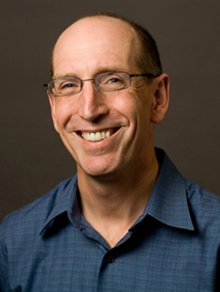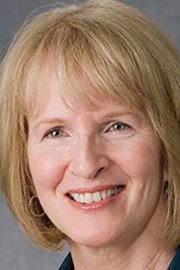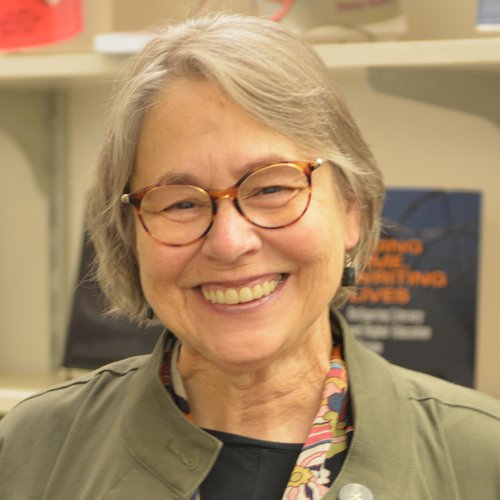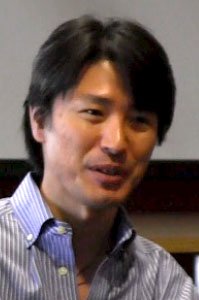Reimagining Student Writers #suwrites
Reimagining Student Writers #suwrites
Writing Across the Curriculum: Developing Strategies to Teach Writing in the Disciplines
Learn more about the Writing Across the Curriculum Faculty Fellows Program and join the 2018-2019 Faculty Fellows in a panel moderated by Genevieve García de Müeller.
What are some effective writing assignments? What are some best practices for responding to student work? How can writing be used to help students learn in the disciplines? The Faculty Fellows will provide some suggestions for answering these questions and more.
Monday, November 12, 2019
12:30-1:45 pm
Tolley 304

Light lunch will be provided.
To request accessibility accommodations, Kristen Krause at kkrause@syr.edu no later than November 1.
This event is presented by Writing Studies, Rhetoric, and Composition and is co-sponsored with the Center for Teaching and Learning Excellence.
Listening to Student Writers: Multimodal Research in 2019
Rebecca Moore Howard
Wednesday, October 30
2:15-3:25
Bird Library 608
The first big initiative in the Citation Project focused exclusively on textual coding of the researched projects that 174 student writers in 16 colleges from around the US submitted in their composition classes. The findings raise grave questions about students’ commitment to and engagement in their writing assignments. Now Citation Project researchers are piloting, at Syracuse, multimodal research that complicates and enriches the data and findings of the 174-student study. Early coding of the “Students and Their Sources” data provides insights into students’ knowledge base, motivations, and writing processes that are of potential use to faculty across the curriculum.
Rebecca Moore Howard is Professor of Writing and Rhetoric at Syracuse. Her scholarship focuses on the interplay of institutional structures, cultural values, and pedagogical norms in the teaching of writing.
To request accessibility accommodations, contact Erika Dwyer (ecdwyer@syr.edu) no later than October 18.
Support Writing in the Sciences: Exploring Strategies for Engaged Learning
With the student body of educational institutions now firmly established as transnational and multilingual, faculty are presented with the opportunity and the challenge of crafting pedagogy appropriate to contemporary student audiences. In this session, faculty from multiple disciplines will share information about the multilingual students at SU, as well as pedagogical renovations appropriate to our current student body.
Wednesday, March 1, 2018
12:30-1:45
Tolley 304
Join faculty for a conversation on how writing is used in the sciences. How can we work together to support learning in STEM and allied disciplines? What are some writing to learn assignments that really work? How can we use writing to promote engaged learning across the university?
Katie M. Becklin, Assistant Professor, Biology
Walter Freeman, Assistant Teaching Professor, Physics
Lenny Grant, Assistant Professor, Writing Studies, Rhetoric, and Composition
Patrick W. Berry, Assistant Professor, Writing Studies, Rhetoric, and Composition (moderator)
To request accessibility accommodations, Laura Sauta at llsauta@syr.edu no later than February 22.
Supporting International Student Writers: From Small Classes to Large Lectures
With the student body of educational institutions now firmly established as transnational and multilingual, faculty are presented with the opportunity and the challenge of crafting pedagogy appropriate to contemporary student audiences. In this session, faculty from multiple disciplines will share information about the multilingual students at SU, as well as pedagogical renovations appropriate to our current student body.
Wednesday, March 22, 2017
2:15-3:30
347 Hinds Hall
Craig Dudczak, Associate Professor, Communication and Rhetorical Studies
Matthew Hammill, Senior Lecturer, English to Speakers of Other Languages
Youmie Kim, Senior Lecturer, English to Speakers of Other Languages
Jamie Winders, Professor of Geography
To request accessibility accommodations, contact Julianna Bialek at jmbialek@syr.edu no later than March 15.
Disciplinary Perspectives on Teaching "Good Writing"
For this session, we imagine discussion of questions such as “What does good writing mean in my discipline? What are my strategies for working with student writers? What challenges do I face in working with student writers?”
Thursday, February 25, 2016
12:30–1:50 pm
500 Hall of Languages
Mike Frasciello, Director of Online Learning, College of Engineering and Computer Science
Amanda Nicholson, Associate Dean, Whitman School of Management
Gina Pauline, Associate Professor, Falk College of Sport and Human Dynamics
Jennifer Stromer-Galley, Associate Professor, School of Information Studies
Rhetorical Virtues: The Ethical Discourse of the Writing Classroom
Wednesday, April 1, 2015
1:00
Schine 304AB

Writing education in post-secondary institutions in the United States means different things to different people. Today, college writing programs may understand themselves to be teaching academic discourse, or community service, or critical consciousness. The goals of postsecondary writing education may focus on promoting active citizenship, or multi-modal communication, or World English. The diversity of pedagogies and theoretical approaches to teaching writing reflects the post-modern commitments of Writing Studies, in which grand narratives are rejected and the work of a writing program is grounded in the material realities of learners. And yet writing curricula of all kinds, John Duffy argues, may be understood to speak a common language, one grounded in an ethical discourse derived from the everyday practices of teaching writing. In what Duffy calls “rhetorical virtues,” teachers and scholars are offered a shared vocabulary that speaks to the telos of a writing program and to the broader rationale for the discipline of Writing Studies.
Syracuse University News Story
John Duffy is the O’Malley Director of the University Writing Program and an associate professor of English at the University of Notre Dame.
What High School Students Know
Wednesday, February 18, 2015
12:45-2:05
500 Hall of Languages
What do AP, IB and SAT writing assessments tell us, and not tell us, about incoming students? What is Common Core and how is it shaping teaching and perceptions of writing? What is “college-level writing" as distinguished from students’ other writing? How might differences in students’ backgrounds and identities shape their literate experiences and expectations of writing in higher education? This event will focus on various aspects of students' transitions from secondary schools to higher education with the aim of exploring how we might best foster their continued growth.
Sarah M. Fleming, English Teacher, Westhill High School,
English Education Doctoral Student
Marcelle Haddix, Associate Professor, English Education
Eric Janicki, English Teacher, Eagle Hill Middle School,
Fayetteville-Manlius Schools
Brice Nordquist, Assistant Professor, Writing Program
Tony Scott, Director of Undergraduate Studies, Writing Program
Rhetorical Genres
Wednesday, November 5, 2014
12:45-2:05
Hinds 347 (Katzer Room)
“Students don’t write well.” We hear this statement often, but what does “writing well” really mean? We will explore a range of answers to this question, with attention to the ways in which our expectations for student writing are shaped by disciplinary values that vary widely across the academy. Faculty presenters will briefly share their reflections about the writing genres characteristic of their disciplines and their strategies for helping students understand the opportunities and constraints those genres create. Following the presentations, there will be time for questions and discussion among panelists and audience members.
Johanna Keller, Director, Goldring Arts Journalism Program, Newhouse
Alan Middleton, Chair, Department of Physics
Amanda Nicholson, Associate Dean of Undergraduate Programs, Whitman
Jane Read, Associate Professor, Department of Geography
Lois Agnew, Chair and Director, The Writing Program, panel moderator
Understanding Genres as Culturally Meaningful Actions
Thursday, April 4, 2014
1:00-3:00 pm

Without ever adopting a genre-based approach to teaching and studying writing, every teacher and every student in every classroom is affected by the genres surrounding them. Becoming aware of genres as culturally meaningful actions opens up a perspective on literacy that might otherwise remain hidden. Incorporating that awareness into one’s own teaching helps students understand and act on a critical view of the genres they are asked to read and write. In this talk and workshop, I will briefly explain and illustrate a view of genres as rhetorically and culturally meaningful actions. Rather than forms and formulas, genres enact the communities within which they operate and reinforce those communities’ values and habits. I will present different approaches to genres within classrooms that go beyond reproducing genres to understanding them rhetorically, critiquing their cultural significance, and acting deliberately to reinforce or change those genres. In an interactive session, we will extend these practices by examining specific genres, including new genres emerging through digital technologies., and their cultural significance. After this session, I hope participants will see genres everywhere and think carefully about how to use the genres that appear in their classrooms.
Amy Devitt
Professor of English, Frances L. Stiefel Teaching Professor, and Chancellors Club Teaching Professor at the University of Kansas
What Do We Value in Student Writing: Aligning Goals and Assessment Practices to Foster Student Learning
Thursday, February 27, 2014
12:30-1:50 pm
This session will offer instructors the opportunity to examine what they tend to value in students’ writing, compare their values to those of their colleagues, and learn more about what their comments on students’ writing might be communicating to students. The goal is to help instructors better communicate their values to students and more deliberately align assessment practices with desired learning goals for student writers.
Kristi Andersen, Maxwell
Kelly Chandler-Olcott, Education
Tony Scott, The Writing Program
Preventing Plagiarism Throughout the Curriculum
Wednesday, October 16, 2013
12:40–2:00pm
Location: 500 Hall of Languages

Want to prevent student plagiarism? Here's what you need to teach! This session will present data from the Citation Project 16-institution study of 174 college composition students' research papers. These data illustrate how much of their research sources students actually read; what sorts of sources they consult; and how they use the material they glean from their sources. The presenter, a lead researcher in the Citation Project, will couple the Project's findings with Susan Blum's ethnographic study of student plagiarism at Notre Dame university and Project Information Literacy's study of college research assignments, using these three data sets to make recommendations for what instructors across the disciplines can constructively do to support student writers in ethical and productive selection and use of sources. Respondents to the presentation will include Margaret Usdansky from the Academic Integrity Office and SU faculty from a variety of disciplines.
Rebecca Moore Howard, The Writing Program
Respondents:
Julie Hasenwinkel, Engineering
Linda M. Milosky, Communication Sciences and Disorders
Margaret Usdansky, Academic Integrity Office
Patrick Williams, Bird Library
Paul Kei Matsuda: “Reimagining Student Writers in the Global U.S. Higher Education"
Paul Kei Matsuda
Professor of English and Director of Second Language Writing, Arizona State University
Thursday, April 4, 2013
3:30
500 Hall of Languages

U.S. higher education is not what it used to be. In the age of globalization, students transcend national boundaries, choosing where they receive their education, where they work, and where they live. As a result of the transnational flow of students, U.S. higher education is facing two challenges: to educate U.S. students to become participants in the global society while also transforming U.S. higher education in response to the growing presence of international students. In this presentation, I will discuss the implications of globalization for U.S. higher education with a focus on the role of writing instruction for an increasingly diverse and global student population.
Professor Matsuda's visit is cosponsored by The Writing Program; Languages, Literatures, and Linguistics; the School of Education and the Kreischer Lecture Fund; Communication and Rhetorical Studies; the Humanities Center; Women's and Gender Studies; SU Abroad; Phi Beta Delta International Honor Society, Alpha Sigma Chapter; and the Slutzker Center for International Services.
This event is free and open to the public.
Writing Across Genre and Technologies
Wednesday, March 20, 2013
2:15-3:45
009 Huntington Beard Crouse
This workshop will focus specifically on the place of new media in academic writing. We will discuss strategies for adopting and adapting contemporary technologies in the college classroom, and how we as teachers can help our students develop genre awareness as a means of bridging the gap between the work they do for us and the writing they do outside their classes.
Patrick W. Berry, The Writing Program
Collin Gifford Brooke, The Writing Program
Responding to Student Writing
Thursday, February 21, 2013
12:30-1:50 (lunch provided)
500 Hall of Languages
Jamie Winders, Department of Geography
Lois Agnew, Writing Program
This workshop will focus on strategies for providing feedback that will help students become more confident and proficient writers. We will begin the session by briefly sharing key principles that guide our responses to student writing, as well as the challenges we face in working with students as writers. We will then draw on insights and sample materials provided by colleagues across disciplines as we consider strategies for responding to student work that reflect varied disciplinary objectives and constraints and the different aspects of student writing that we value in our courses.
Writing Across Contexts
Friday, November 2, 2012
10-11am
Crouse-Hinds Hall 020
Collin Gifford Brooke, Writing Program
Kelly Chandler-Olcott, Reading & Language Arts
Marcelle Haddix, Reading & Language Arts
Margaret Himley, International Education and Engagement
Rebecca Moore Howard, Writing Program
Tony Scott, Writing Program
Who is “the student writer”?
How do student writers from different social, language, and educational backgrounds navigate the academy?
How can we help students connect their languages and expertise to their academic work? What strategies can we use to build on the strengths they bring with them when they come to college?
